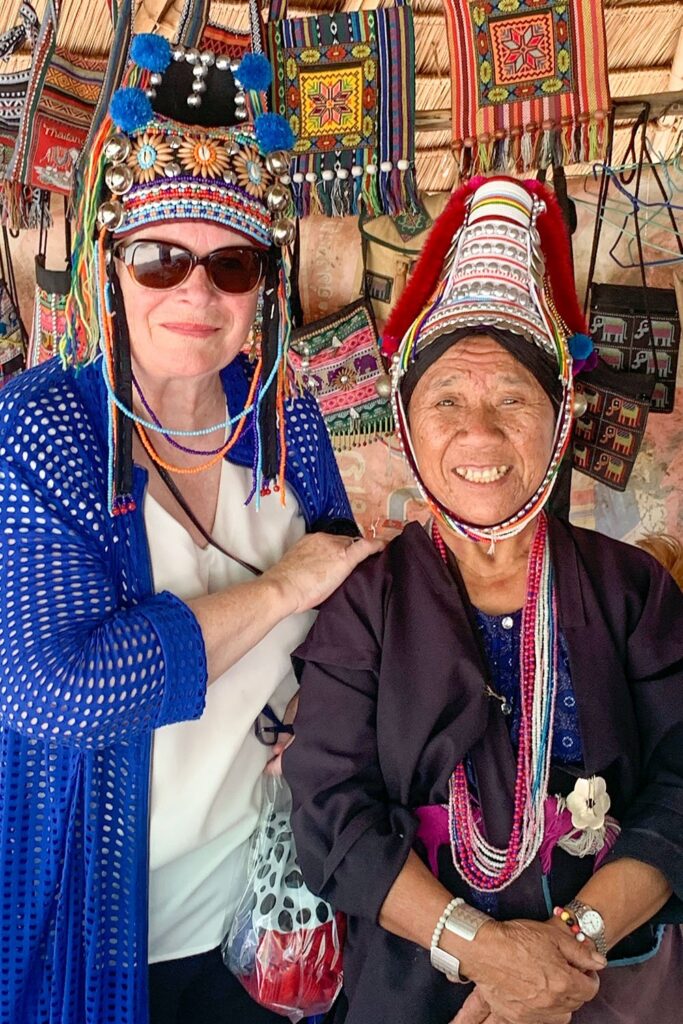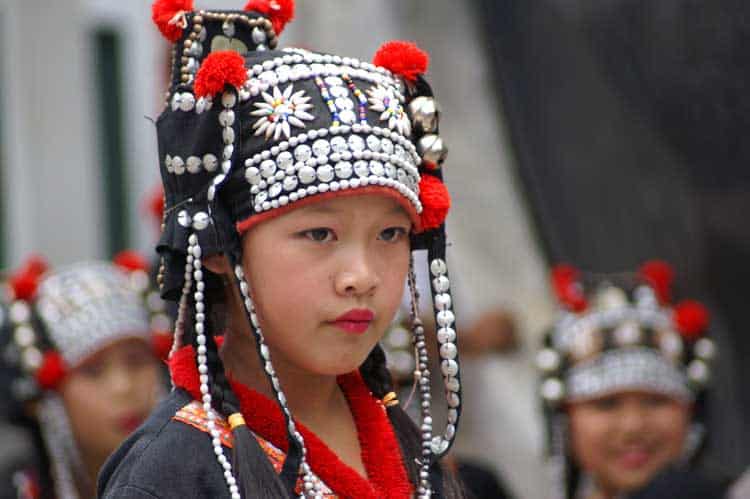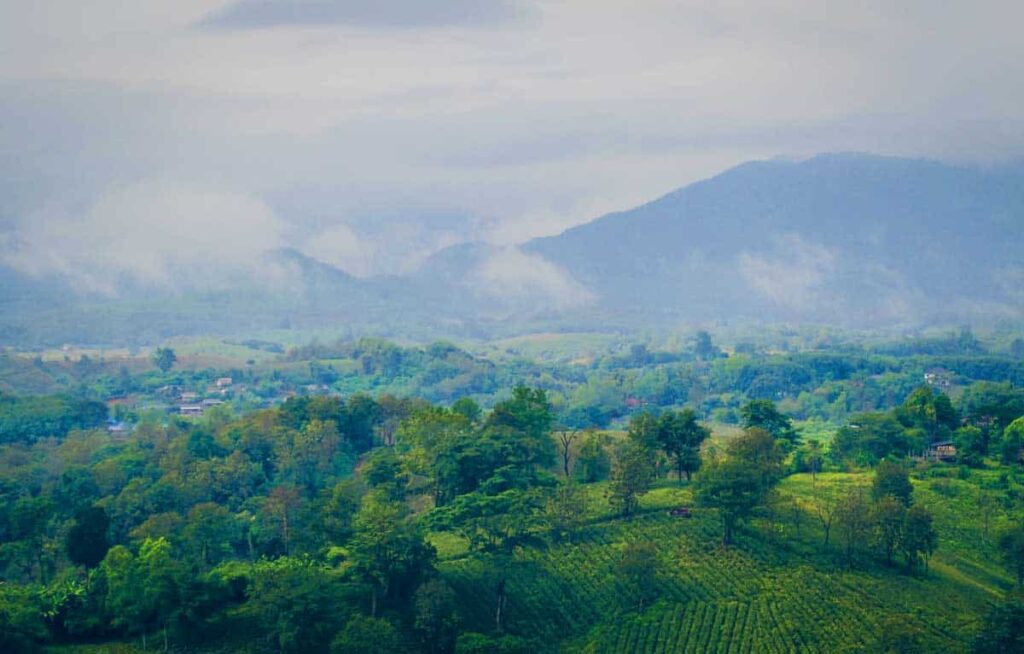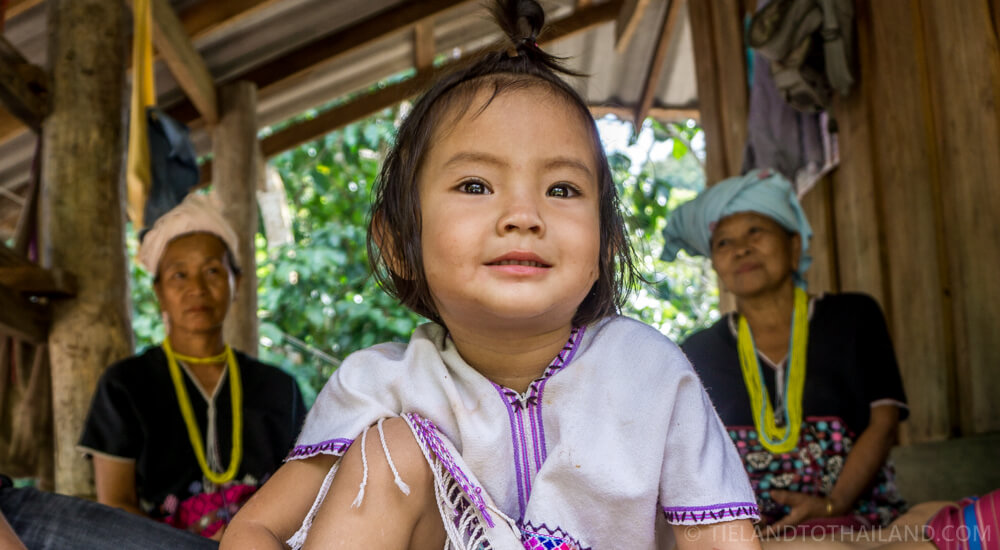Have you ever wondered about the diverse cultures and communities that can be found in Northern Thailand? Well, get ready to embark on a fascinating journey as we delve into the intriguing world of the unique hill tribes that call this region home. From the Lahu to the Karen, each tribe has their own distinct customs, traditions, and way of life that is sure to captivate your curiosity. So, get ready to learn more about these rich and fascinating communities in this article!
Northern Thailand is a treasure trove of cultural diversity, and the hill tribes are a testament to that. Each tribe is distinguished by their own language, clothing, belief systems, and practices that have been passed down through generations. These tribes have managed to preserve their heritage and live in harmony with the surrounding nature, creating a unique blend of tradition and modernity. From the intricately woven patterns adorning their clothing to their spiritual ceremonies and festivals, every aspect of their daily lives is steeped in culture and history.
In our upcoming article, we will take a closer look at some of the prominent hill tribes of Northern Thailand. We will explore their origins, their way of life, and the challenges they face in today’s changing world. You will have the opportunity to learn about their traditional crafts, taste their delicious cuisine, and even participate in their vibrant festivals. So, get ready to be inspired and amazed as we embark on this cultural adventure together. Stay tuned for more exciting insights into the unique hill tribes of Northern Thailand in our upcoming article!

Introduction
The allure of Northern Thailand
Diverse cultural landscape
Northern Thailand is a region renowned for its breathtaking landscapes, rich traditions, and vibrant communities. The allure of this area lies not only in its natural beauty but also in the diverse cultural heritage of its hill tribes. These indigenous communities have created a unique tapestry of customs, beliefs, and traditions that have captivated visitors from around the world.
One of the main draws of Northern Thailand is its diverse cultural landscape. Each hill tribe has its own distinct customs, language, and way of life, offering a glimpse into a world that feels a world away from the bustling cities in the region. Exploring the remote villages nestled in the hills provides a truly immersive experience into these fascinating cultures, allowing you to gain insight into their rich histories and awe-inspiring traditions.
History of Hill Tribes
Origins of the Hill Tribes
Migration patterns
Relations with the Thai government
The hill tribes of Northern Thailand have a long and fascinating history. Believed to have originated from various regions in China, Myanmar, and Laos, these tribes have migrated to Northern Thailand over several centuries. Seeking refuge from conflicts, political unrest, and economic hardships in their homelands, they embarked on arduous journeys that brought them to the tranquil mountainous regions of Northern Thailand.
Over the years, the hill tribes have established relationships with the Thai government, which has had its ups and downs. While there have been efforts made to integrate these communities into the larger Thai society, there have also been challenges in preserving their cultural identity and ensuring their rights and well-being.

Major Hill Tribes
Akha Tribe
Karen Tribe
Hmong Tribe
Lahu Tribe
Among the numerous hill tribes in Northern Thailand, there are several major tribes that stand out for their distinct cultures and fascinating traditions. The Akha tribe, known for their elaborate costumes and intricate silverwork, are renowned for their warm hospitality and tightly knit communal structure. The Karen tribe, famous for their weaving skills and long-necked women, have a strong sense of community and a rich spiritual heritage. The Hmong tribe, with their vibrant embroidery and colorful festivals, are known for their resilience and adaptability. Lastly, the Lahu tribe, characterized by their striking black and red attire, have a reputation for their organic farming practices and musical abilities.
Distinctive Cultures
Traditional practices and rituals
Language and clothing
Beliefs and spirituality
The hill tribes of Northern Thailand have preserved their cultural heritage through traditional practices and rituals that have been passed down through generations. These customs vary among the different tribes, from Akha’s swinging ritual to Hmong’s flower festivals, each serving as poignant reminders of their ancient traditions.
Language and clothing also play a significant role in distinguishing the hill tribes from one another. Each tribe boasts its own distinct language, contributing to the rich linguistic tapestry of the region. Additionally, the traditional clothing of the tribes reflects their unique identities, with intricate embroideries, vibrant colors, and symbolic motifs adorning their garments.
Beliefs and spirituality are deeply ingrained in the daily lives of the hill tribes. Animism and shamanism are prevalent spiritual practices, with a deep reverence for nature and ancestral spirits. The tribes’ spiritual beliefs have shaped their close connections to the natural world, which can be witnessed in their sustainable farming practices and impeccable knowledge of medicinal herbs.

Livelihoods and Economy
Agriculture and farming
Handicrafts and textiles
Tourism and cultural preservation
The livelihoods of the hill tribes primarily depend on agriculture and farming. The mountainous terrain of Northern Thailand provides fertile land for cultivating crops such as rice, corn, and vegetables. These communities practice sustainable farming methods, relying on traditional knowledge and organic practices to maintain the integrity of their land.
Handicrafts and textiles also play a significant role in the economic sustenance of the hill tribes. Skilled artisans create intricate products such as hand-woven textiles, silver jewelry, wood carvings, and embroidered clothing. These crafts are not only a source of income but also a means of preserving their cultural heritage.
Tourism has emerged as a vital sector for the hill tribes, providing economic opportunities while raising awareness about their rich traditions. Responsible tourism practices offer visitors the chance to engage in cultural exchanges, supporting the tribes while ensuring their cultural preservation for future generations.
Challenges and Preservation Efforts
Development pressures
Loss of cultural identity
Community-led initiatives
Support from NGOs
The hill tribes face numerous challenges and threats due to rapid development and cultural assimilation. As infrastructure projects expand into the remote areas, communities face pressure to assimilate into the broader society, potentially eroding their cultural identities and traditional practices.
Nevertheless, community-led initiatives and support from non-governmental organizations (NGOs) are helping to preserve and protect the hill tribes’ cultural heritage. The tribes themselves are actively involved in initiatives to sustain their cultural practices, with community-based tourism and business cooperatives ensuring that the benefits of tourism trickle down to the local communities.
NGOs, such as the Hill Area Development Foundation (HADF), work tirelessly to support the cultural preservation efforts of the hill tribes. They provide training, education, and resources to help preserve traditional crafts, promote sustainable agriculture, and protect ancestral lands. The collaboration between communities, NGOs, and government agencies is crucial in ensuring the survival and thriving of these unique cultures.

Unique Hill Tribe Festivals
Akha Swing Festival
Karen New Year Celebration
Hmong Flower Festival
The hill tribes’ vibrant festivals are a cornerstone of their cultural heritage, providing an opportunity for them to come together, celebrate, and showcase their traditions. The Akha Swing Festival, held annually in the month of December, marks the end of the harvest season and involves swinging on giant swings to bring good luck for the coming year. The Karen New Year Celebration, typically held in January, is a colorful event filled with music, dance, and religious ceremonies. The Hmong Flower Festival, celebrated in February, showcases the tribes’ intricate embroidery and floral displays, with vibrant outfits and lively cultural performances.
Sustainable Tourism
Responsible travel practices
Homestay experiences
Ethical cultural exchanges
To ensure the long-term preservation of the hill tribes, sustainable tourism practices are vital. Responsible travel involves respecting the cultural practices and traditions of the communities, minimizing the environmental impact, and ensuring the economic benefits flow back to the locals.
Homestay experiences offer visitors the chance to immerse themselves in the daily lives of the hill tribes. Staying with a local family provides a genuine and authentic experience while fostering meaningful cultural exchanges. Interactions with the tribes offer a unique opportunity to learn about their customs, partake in traditional activities, and build unforgettable connections.
Ethical cultural exchanges also play a crucial role in sustainable tourism. Engaging with the local communities through workshops, demonstrations, and cultural performances not only supports the tribes economically but also helps bridge the gap between different cultures, fostering mutual understanding and appreciation.

Impact on Hill Tribes
Cultural assimilation
Economic opportunities
Social challenges
The evolving landscape and increasing contact with the outside world have brought both benefits and challenges to the hill tribes. Cultural assimilation poses a risk, as modernization and outside influences can erode traditional practices and ways of life. However, economic opportunities from tourism have provided income and improved the quality of life for many in the communities.
Alongside these benefits, social challenges remain. Access to education and healthcare are ongoing issues, and the tribes often face discrimination and marginalization. Nevertheless, the resilience and determination of the hill tribes allow them to navigate these challenges while preserving their cultural identities and ancient traditions.
Conclusion
Preserving Northern Thailand’s cultural heritage
Appreciating the unique hill tribe communities
Ensuring sustainable development
Exploring the unique hill tribes of Northern Thailand offers a remarkable journey into ancient traditions, vibrant cultures, and breathtaking landscapes. Preserving their cultural heritage is not only a responsibility we all share but also a privilege that allows us to learn from and appreciate the richness of these communities.
As visitors, we must engage in responsible travel practices and support initiatives that promote the well-being and cultural preservation of the hill tribes. By fostering mutual respect, cultural understanding, and sustainable development, we can ensure that future generations will have the opportunity to connect with and be inspired by the remarkable hill tribes of Northern Thailand. So pack your bags, open your heart, and embark on an extraordinary adventure that will leave a lasting impression on your soul.
